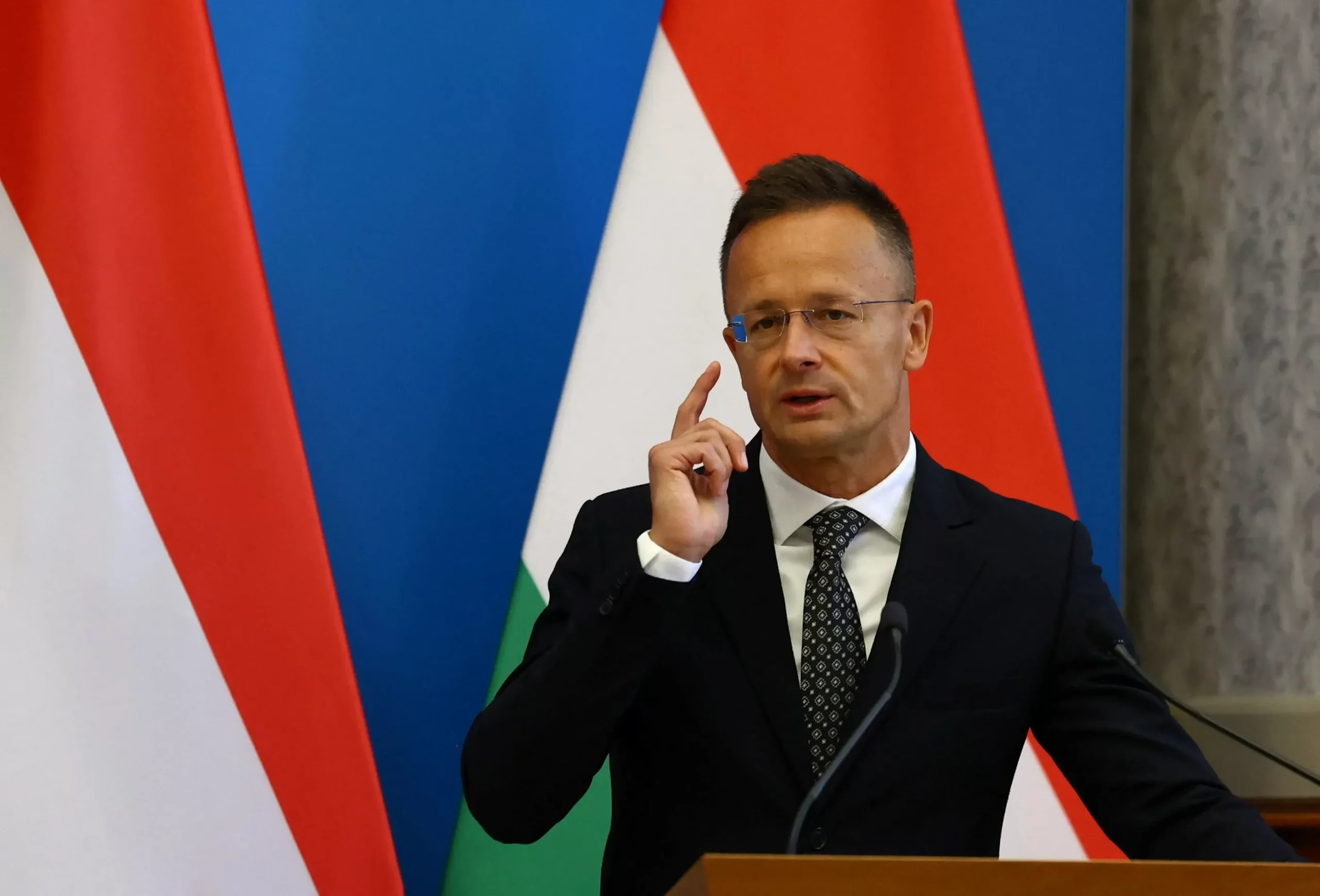Hungary’s Foreign Minister Warns Against Ukraine’s EU Membership: A Risky Move for the Bloc
In a recent statement, Hungary’s Foreign Minister Péter Szijjártó warned against the potential risks of granting Ukraine membership in the European Union. This warning comes as Ukraine continues to push for closer ties with the EU, with hopes of one day becoming a member state.
While the idea of expanding the EU may seem appealing, Szijjártó argues that granting Ukraine membership would bring “unacceptable risks” to the bloc. These risks include a greater chance of being pulled closer to war-torn regions and being forced to deal with the ongoing conflict between Ukraine and Russia.
One of the main concerns raised by Szijjártó is the potential for the EU to become more involved in the ongoing conflict between Ukraine and Russia. As a neighboring country, Hungary has a vested interest in maintaining stability in the region. With Ukraine’s membership, the EU would be more likely to get involved in the conflict, potentially leading to further tensions and instability.
Another concern is the potential for an influx of Ukrainian migrants into other EU member states. With Ukraine’s struggling economy and high unemployment rates, many Ukrainians may see EU membership as an opportunity for a better life. This could lead to a significant increase in migration to other EU countries, putting a strain on their economies and social systems.
Furthermore, Szijjártó highlighted the issue of minority rights in Ukraine. The country has a significant Hungarian minority, and there have been reports of discrimination and human rights violations against this community. Granting Ukraine EU membership without addressing these issues could lead to further tensions and conflicts within the bloc.
It is also worth noting that Ukraine’s current political climate is not stable. The country has faced ongoing political turmoil and corruption, which could have a negative impact on the EU if they were to become a member state. The EU must carefully consider these factors before making any decisions about Ukraine’s membership.
Szijjártó’s warning is a reminder that the EU must prioritize the stability and well-being of its current member states. While the EU’s values and principles of democracy and human rights are admirable, they must also be cautious in their expansion plans. The potential risks of granting Ukraine membership must be carefully evaluated before any decisions are made.
However, this does not mean that Hungary is against Ukraine’s aspirations to join the EU. In fact, Szijjártó stated that Hungary fully supports Ukraine’s European integration and will continue to provide assistance to the country in its reform efforts. But he also emphasized the importance of addressing the concerns and risks associated with membership.
In conclusion, Hungary’s Foreign Minister Péter Szijjártó’s warning against Ukraine’s EU membership should not be taken lightly. The EU must carefully consider the potential risks and implications of granting membership to Ukraine. While the EU’s expansion is a positive step towards a more united Europe, it must be done with caution and consideration for the well-being of all member states.





![Complete BritRail Pass Guide [Types, How to Use It, Pros + Cons]](https://inside-news.uk/wp-content/uploads/2025/06/00221EB4-BCA2-4DBB-6CD4-83DBC37D71FA-120x86.webp)












